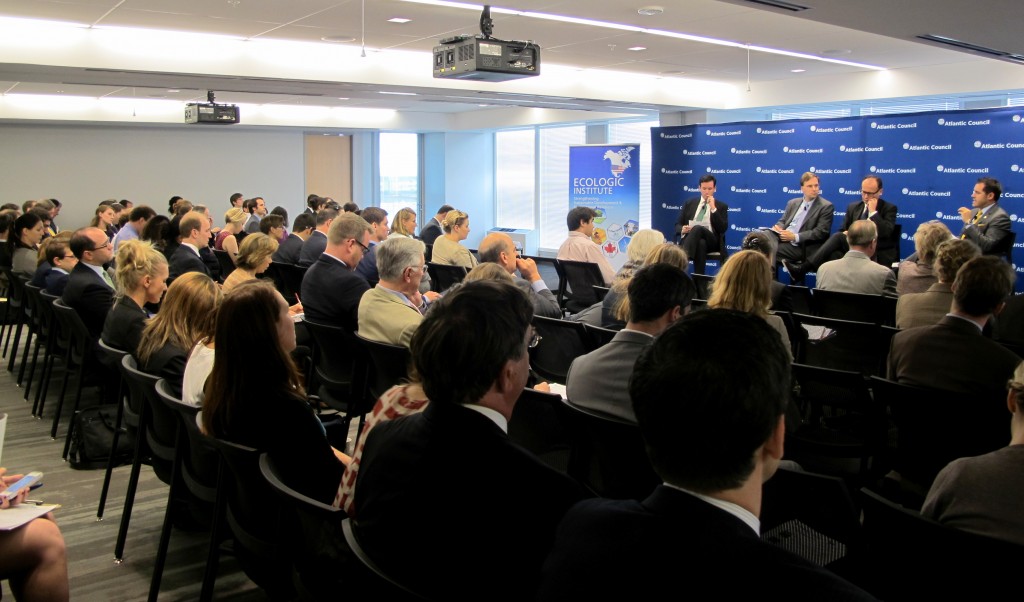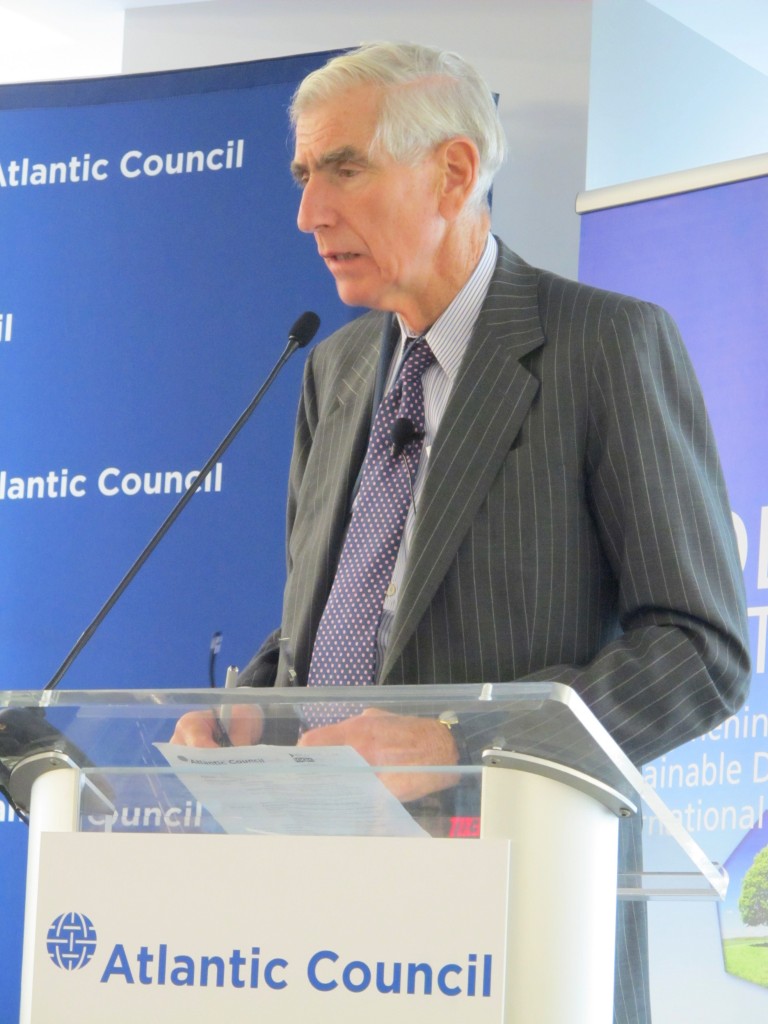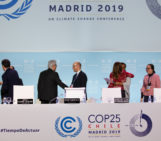At the first flagship Emerging Leaders in Environmental and Energy Policy (ELEEP) Network conference, participants dug deep to identify key areas in energy and environment where transatlantic cooperation could be most effective. ELEEP member and former EGU Science Communication Fellow Edvard Glücksman reports back from Washington DC.
Finding solutions through cooperation is not necessarily the paradigm of choice in Washington DC these days. Yet it was with precisely this aim that energy experts converged on the non-partisan Atlantic Council’s headquarters earlier this month to participate in the first ever public event hosted by the ELEEP network of young energy and environment specialists.
The one-day conference featured a set of panel discussions on energy and environmental policy which, taken together, aimed to outline the compelling case for transatlantic cooperation.
Acknowledging the problem
The broader challenge, laid out by Christian Burgsmüller of the Delegation of the European Union to the United States, is cooperating to identify and deploy the ideal energy mix for the 21st century. This idea was echoed by Rear Admiral Neil Morisetti, who, based on his decorated Royal Navy career, proposed a transatlantic roadmap by which humanity can square its need for energy with the potentially catastrophic risks of climate change.

Full house at the first Emerging Leaders in Environmental and Energy Policy (ELEEP) Network conference at Atlantic Council headquarters in Washington DC. (Credit: Edvard Glücksman)
Morisetti, currently Special Representative for Climate Change with the UK Foreign & Commonwealth Office, argued for a long-term energy strategy driven by improvements to efficiency, the proliferation of renewables, effective distribution infrastructure, and guaranteed security. Alluding perhaps to the current political situation in the US, he suggested that simply realising that there is a problem is an important and often overlooked first step in finding a solution. Only then can new technologies be developed and these, in turn, can only be effectively implemented through close intercontinental collaboration between nations and companies.
Morisetti also predicted that military installations will become increasingly important as experimental microcosms for testing potentially important future energy technologies, as the cooperative mechanisms are already in place within a power-hungry sector continuously trying to make efficiency savings.
“I have likely been responsible for more energy consumption in my lifetime than everybody in the room put together,” joked the former aircraft carrier commander.
Last chance for transatlantic cooperation
Adding a sobering layer of realism to the discussion, Czech Ambassador-at-Large for Energy Security Václav Bartuška spoke of the consequences of waning transatlantic cooperation. According to Bartuška, a former envoy in the Russia-Ukraine gas dispute, Europe and North America retain plenty of common interests despite recent political rifts and historically diverging approaches to energy policy. As China’s global economic influence grows, transatlantic nations currently face what Bartuška believes is a final decade to devise and implement a long-term energy and environmental strategy for the planet. Transatlantic leadership in these sectors is beneficial, Bartuška argues, because the West has already made its mistakes and learned from them.

Former US Ambassador to the EU C. Boyden Gray speaks with cautious optimism about future transatlantic relations. (Credit: Edvard Glücksman)
“Whereas we have overcome the age of not being able to breathe on account of air pollution in cities, Shanghai is currently reaching that point,” he warned.
Bartuška cited nuclear power as an example of an area where the US and Europe imminently have to choose whether to cooperate with one another to set global standards, or to take a step back and cede their influence to countries with historically lower environmental priorities, including China, India, Russia, and South Korea.
In this context, the forthcoming Transatlantic Trade and Investment Partnership (T-TIP) meeting, which holds the potential to open up trade between the United States and Europe, represents the most important round of transatlantic negotiations in many years, according to Former US Ambassador to the EU C. Boyden Gray. Apart from the obvious economic benefits of cooperation, Gray points out that the T-TIP would offer Europe and North America a final chance to reaffirm their historically shared values, including in the energy and environment sector.
In a last-minute twist, as a result of the US government shutdown, the latest round of T-TIP talks were postponed last week.
For more details and video highlights from the conference, visit the official website.
By Edvard Glücksman, Postdoctoral Research Fellow, University of Duisburg-Essen



Pingback: Introducing the Emerging Leaders in Environmental and Energy Policy Network | GeoLog